An Interview with Bleh
Sudhen “Bleh” Wahengbam, an Indian Counter-Strike broadcast analyst and commentator, is one of the most recognisable names in the world of Counter-Strike. Bleh is the region's most famous and well-known name in the sport and has commentated and analysed multiple tier-1 Counter-Strike events including the ESL Pro League Season 9, DreamHack Open Rotterdam 2019 ESL Pro League Season 15 and the PGL Major Antwerp 2022 and was also on the analyst line-up for the recently concluded IEM Rio 2023.
With the game witnessing the return of a lot of older players with the upcoming launch of Counter-Strike 2, Dust2.in had a chat with Bleh, talking about all things Counter-Strike, including his journey, the Indian Counter-Strike (CS) community and the future of CS in the country.
Let's start right at the beginning Bleh, how did you get into the world of Counter-Strike?
It all started circa 2001/2 when I happened to sit on a PC at a café and it had this mod installed for HL called Counter-Strike. A friend convinced me to try it out and play with him, and well, that’s when it began.
A couple of years later is when I was introduced to the esports side of things by yet another friend. It’s often said how CS is a game that’s easy to learn but almost impossible to master. That is what hooked me into it, and the high level of competition. And I’ve never looked back since.
Did you always want to become an analyst/caster? Growing up, what were some of the esports titles you played?
Oh no. I just enjoyed the game for what it was and loved following the competitive scene. Getting into casting/analysis happened much later when CS:GO came out and I thought I’d give it a shot as a hobby since there was no one covering the Asian games at that point.
I used to watch StarCraft around 2000, but my first esports titles would have been Quake 3, Unreal Tournament and then CS.

Talk to us about your journey coming from the Indian subcontinent, what were some of the difficulties faced in your esports journey?
Ah that's quite a lot. Primarily the complete absence of any esports infrastructure back then. Which meant, taking a plunge into esports was extremely risky and almost impossible to make a livelihood out of if you wanted to do it full time.
I think my big breakout was when I had the opportunity to attend IEM Taipei as an analyst and got to work with some of the best talent we’ve had. Got great advice from them and they remain great friends and colleagues to this day.
I had casted Asian CS for about 2 years at that point, and I just dropped a mail to ESL pitching myself as a talent for the event since it was the first Asian Minor while showing the work I had done. And things just worked out.
As a caster and analyst, how has it affected your understanding of the game, could you share with us how you have started viewing the game differently ?
I started looking at it more holistically. As an analyst I started looking at the game as not just what happens in the server but also out of it.
And also about esports/cs as a full product. Most people, including players, don't see our game outside of the server. It is so much more than just playing the game or just tournaments. It's this entire fragile ecosystem that enables you to watch your favourite event from the comfort of your home. There is so much work and so many passionate people involved behind the scenes, and this is something I realized early on when I got into talent work.

Talking about being an analyst/caster, could you talk to us about some of the misconceptions players or viewers have about people behind the desk?
Haha we don't hate particular teams or players or have a vendetta. Sometimes you'll hear hot takes and so many people lose their minds over it. But it's all part of the show. We're trying to present the game in a way that caters to not just veterans but also newer viewers while trying to be as entertaining as possible.
Also there is no 'bad blood' between analysts just because we might disagree on air.
Looking back, do you think it is easier to become a caster or analyst today than it was when you started?
Yes and no. And this will be specific to Counter-Strike. There are certainly way more opportunities and avenues available for someone to get into commentary/analysis now. But at the same time CS has some of the most talented casters/analysts I know of, which means it is very competitive. But if you have what it takes, I think it's 100% easier now.
Part 2 of our chat with Bleh will be out soon.
Also read














